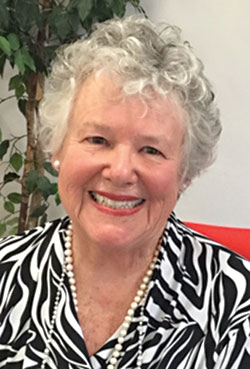
by Mary Wakefield Buxton –
URBANNA —
It wasn’t always smooth sailing for Grandfather. The factory burned to the ground in 1925. The news came to F.W. by telegram as he and his two teenage sons, Fred and my father, George, were in Florida on the family yacht, the iron-hulled “Tobermory.”
Father said F.W. immediately left via train for Ohio where he surveyed the damage to the factory before heading to the bank to secure a loan to rebuild it. In those days there was no such thing as fire insurance, so F.W. took the financial hit personally. Father and Fred brought the “Tobermory” back to Vermilion by themselves. Father remembered an exciting trip chugging up through the wild, undeveloped Intracostal Waterway and through the canals and lakes back to Vermilion.
Then F.W. suffered the loss of two of his children — Robert died not long after birth and Alice died under anesthesia at age 18 in tonsil surgery. F.W. never fully recovered from that devastating loss.
Then the recession hit in the 30s and sales at the company plummeted. F.W. passed away in 1933 and the company passed to his eldest son, who ran the company through World War II when the company developed and manufactured infra-red signal lamps for the U.S. Navy (that prevented Japanese warships from reading signals from U.S. ships.) The company was profitable throughout the war years, 50s and 60s, competing easily with G.E., Sylvania and Westinghouse in design and manufacturing of industrial ceiling lighting.
In 1963 when I flew into Patrick Henry from Cleveland to attend an engagement party in Newport News to my future husband, I remember looking up at the ceiling and seeing Wakefield lighting. How proud I was that my hometown had designed and manufactured that ceiling. I felt this was a special omen.
In 1966 the company was sold to ITT. In the years to come it was spun off to other corporations, until, at last, it closed its doors for good. And then it was over. The end of an era.
The old factory is now an empty hulk, a reminder of the old days, the museum, moved to Toledo, the big house and museum annex razed to the ground. Even the “Tobermory” is gone, which had been sold at F.W.’s death and had served as a tramp steamer for 30 years of hard labor on the Great Lakes, first working for a coal company in Lake Michigan and then as a tug boat in Lake Huron before being left half sunk in the Soo Locks area. (Since then it has been restored to its old grandeur and serves as a Great Lakes charter.)
Only memories survive today — triggered by a 1910 family portrait of F.W. surrounded by his wife and children, my father who passed in 2001 is a baby on Grandmother’s lap. F.W. is dressed in suit and tie, but on his feet he has on a simple pair of well-worn working man’s leather boots so he could walk the plant each day, talk to the men on the line who produced the fixtures, find out how they were doing and make sure that the quality of the products was excellent.
A cousin in her 90s remembers Grandfather. She was just a tyke in the early 30s when he was still alive. Her mother, Ruth, would hurry to the big house on Christmas morning. She remembers her six brothers were home from college and still in their PJs sitting on the steps in the front hall. They were still sleepy, probably having just been routed out of bed by Grandmother who insisted that they come downstairs to greet their little cousin.
She adored her young, handsome uncles — Albert, William, Frederick, George, Theodore and Ernest and would run screaming joy from the front door to the staircase hurling herself into their arms with everyone reeling in laughter.
I can sit here today in my home in Virginia as I pen these words almost 85 years after that Christmas morning at “Harbor View” on the shores of Lake Erie and still hear that laughter — and it seems to me that no matter if everything from the past is now gone — the memories will always abound of that family I so loved.
The Wakefields are no longer immigrants. We think of ourselves now as Americans. Please, no hyphenated links to the old country for us. We, of the third generation, carry a fierce love for America. We understand why our ancestors sacrificed everything to come here. It’s defined in one word: Freedom.
It’s the end of an era for us. It’s now time for newly arrived immigrants to have great ideas, work hard, build new businesses, provide jobs for others and pursue that dream come true in our America — where all things are possible.
© 2021



